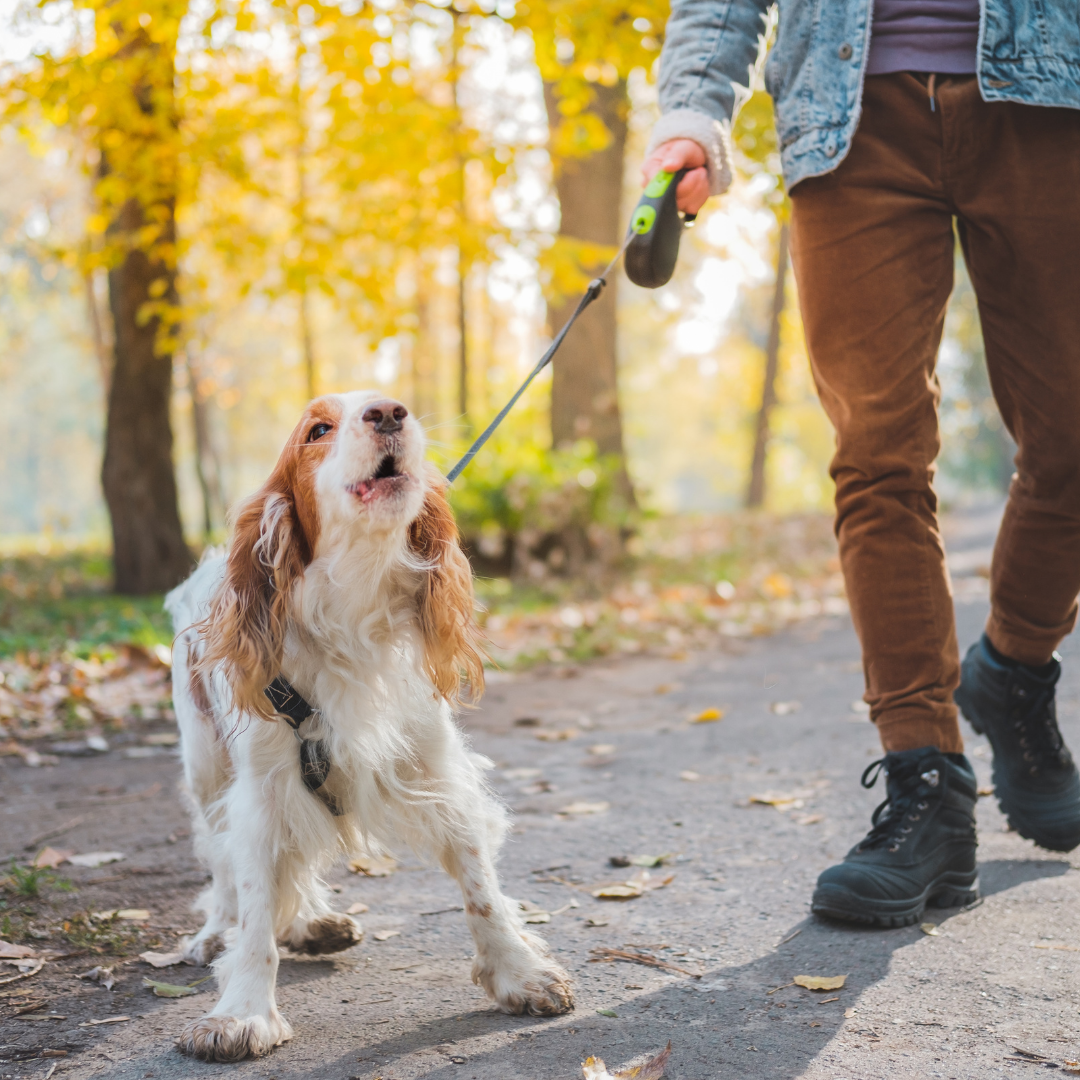
Five Ways To Stop Your Dog's Barking
Here's a list of five techniques that can help prevent your dog from barking. While all can be successful, you shouldn't expect miraculous results overnight. The longer your dog has been practicing the barking behaviour, the longer it will take for them to develop other means of communication. Some of these training techniques require you to have an idea as to why your dog barks.
Always remember to keep these tips in mind while training:
- Don't yell at your dog to be quiet—it just sounds like you're barking along with them.
- Keep your training sessions positive and upbeat.
- Be consistent so you don't confuse your dog. Everyone in your family must apply the training methods every time your dog barks inappropriately. Consistency is key.
Tip 1 - Remove the motivation
Your dog gets some kind of reward when they bark. Otherwise, they wouldn't do it. Figure out what they get out of barking and remove it. Don't give your dog the opportunity to continue the barking behaviour.
Example: Barking at passersby
- If they bark at people or animals passing by the living room window, manage the behaviour by closing the curtains or putting your dog in another room.
- If they bark at passersby when in the yard, bring them inside.
Tip 2- Ignore the barking
If you believe your dog is barking to get your attention, ignore them for as long as it takes for them to stop. Don't talk to them, don't touch them, don't even look at them; your attention, even just asking them to stop, only rewards them for being noisy. When they are finally quiet, even to take a breath, reward them with a treat. Timing is important, so make sure you’re quick to reward the quiet so that you don’t confuse them and inadvertently reward them for barking.
Example: Barking when confined
- When you put your dog in their crate or in a gated room, turn your back and ignore them.
- Once they stop barking, turn around, praise them and give a treat.
- As they catch on that being quiet gets them a treat, lengthen the amount of time they must remain quiet before being rewarded.
- Remember to start small by rewarding them for being quiet for just a few seconds, then work up to longer periods of quiet.
- Keep it fun by varying the amount of time. Sometimes reward them after five seconds, then 12 seconds, then three seconds, then 20 seconds and so on.
Tip 3 - Desensitize your dog to the stimulus
Gradually get your dog accustomed to whatever is causing them to bark. Start with the stimulus (the thing that makes them bark) at a distance. It must be far enough away that they don't bark when they see it. Feed them lots of good treats. Move the stimulus a little closer (perhaps as little as a few inches or a few feet to start) and feed treats. If the stimulus moves out of sight, stop giving your dog treats. You want your dog to learn that the appearance of the stimulus leads to good things (treats)!
Example: Barking at other dogs
- Have a friend with a dog stand out of sight or far enough away so your dog won't bark at the other dog.
- As your friend and their dog come into view, start feeding your dog treats.
- Stop feeding treats as soon as your friend and their dog disappear from view.
- Repeat the process multiple times.
- Remember not to try to progress too quickly as it may take days or weeks before your dog can pay attention to you and the treats without barking at the other dog.
Tip 4 - Ask your dog for an incompatible behaviour
When your dog starts barking, ask them to do something that's incompatible with barking. Teaching your dog to react to barking stimuli with something that inhibits them from barking, such as lying down on their bed.
Example: Someone at the door
- Toss a treat on their bed and tell them to "go to your bed."
- When they're reliably going to their bed to earn a treat, up the ante by opening the door while they're on their bed. If they get up, close the door immediately.
- Repeat until they stay in bed while the door opens.
- Then increase the difficulty by having someone ring the doorbell while your dog is in bed. Reward them if they stay in place.
Tip 5 - Keep your dog tired
Make sure your dog is getting sufficient physical and mental exercise every day. A tired dog is a good dog and one who is less likely to bark from boredom or frustration. Depending on their breed, age and health, your dog may require several long walks as well as a good game of chasing the ball and playing with some interactive toys.

3 comments
I recently purchased an anti-barking device from this shop, and I am beyond impressed with the results! 🐾 The device effectively curbed my dog’s excessive barking without causing any harm. 🚫 The shop offers a fantastic selection of products from leading brands, ensuring quality and reliability. 👌 The customer service was also exceptional, providing helpful advice and guidance in choosing the right device for my specific needs. If you’re looking for an effective solution to control barking, I highly recommend this shop for its excellent products and top-notch service! 🌟🐶
https://www.barkcontrol.com.au/
Have 3 dogs,1is my sons he barks whenever a car comes up the road I open the garage door, pick up my keys,if neighbours appear in their gardens.my other dog has some separation anxiety,barks when other dog barks, but also when I’m not home, and when we go to the beach he starts as soon as he can smell the sea.the third quite anxious owing to some issues with a previous neighbor,doesn’t like neighbour or their dogs seemingly looking in our yard,have quite a slope behind so they are above us he barks then I feel for him such a gentle sole ,would your tool help me
Your suggestions about barking are excellent. I shall practice them more. My one year old yorkie barks lots people are at door If they come in. He is happy. The poor mailman gets bow wow wow. Thank you for good tips.